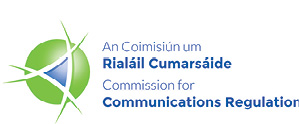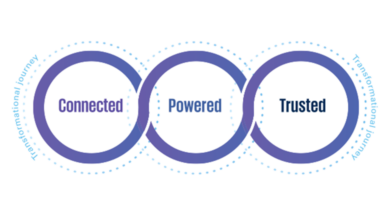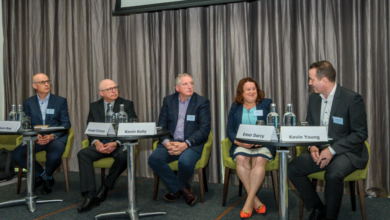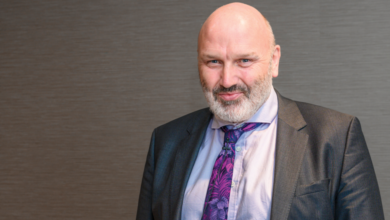Regulating the communications ecosystem
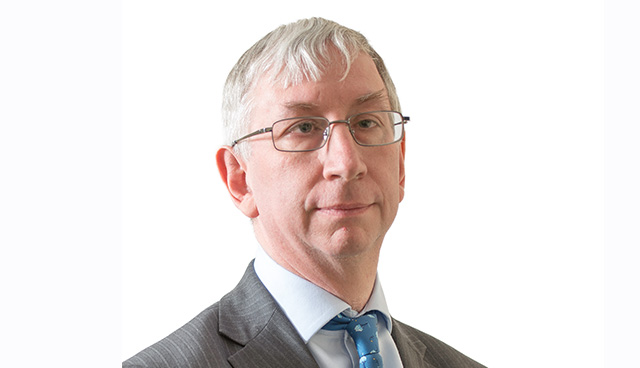

Speaking with eolas Magazine, Commission for Communications Regulation (ComReg) Commissioner Jeremy Godfrey reflects on sectoral trends and the telecoms regulator’s current priorities.
Currently, ComReg is pursuing a series of strategic priorities in relation to competition, the consumer and the internal market. In particular, there are important decisions to be made with regard to competition in the broadband market.
In this market, several competitors depend on access to the Eir network and, as such, ComReg is working to define the terms of access and pricing. “We are in the final stages of making these decisions and this will have a significant impact on the confidence of how those operators function in the marketplace. The price that they have to pay is a very important input in the price that consumers end up paying,” explains Godfrey.
Another priority for the regulator is ensuring that Eir complies with its obligations and “plays fairly in the marketplace”. Having conducted several compliance investigations into the adequacy of Eir’s regulatory governance, subsequently identifying shortcomings, ComReg is in discussions with Eir on a possible agreed resolution of ongoing compliance issues.
Mobile coverage
One of the most significant issues impacting upon end-users is mobile coverage. Improving the understanding of the facts which affect coverage is a key priority for ComReg. “In that regard, the mobile handset that you use can make a big difference to your experience,” outlines Godfrey, adding: “Not all handsets are created equal – some are better at connecting to mobile networks. Therefore, if you live or work in an area where the signal strength is marginal, having a phone that performs better can make all the difference.”
Having tested all the phones on the market, the regulator is now set to publish material which makes these findings more understandable for end-users and consumers.
Likewise, ComReg is addressing the absence of a single authoritative source of information about coverage. “We have obtained information from the operators about their networks that we need in order to be able to produce our own coverage map, based on objective and uniform criteria that we set.
“When that becomes available at the end of this year, it will enable consumers to establish what experience they can expect using different operators and types of service, anywhere in Ireland. That will help them make their choices while also giving policy makers a clearer understanding of the overall picture,” suggests the Commissioner.
One of the factors that can impact on a person’s indoor coverage experience is building material. The same materials that keep heat in also keep radio waves out. “To help end-users to improve their experience, we have liberalised the use of repeaters. A repeater is a piece of equipment used to extend transmission. That will mean that as long as there is a reasonable signal, then you can receive very good coverage within a house or business premises,” he clarifies.
Markets
Within the wholesale market, the most important action taken by ComReg has been to review the access for operators using the Eir network for broadband. Godfrey elaborates, detailing measures to “make certain that those products are available to operators, that Eir doesn’t treat its own retail arm more favourably than other operators and that the pricing is appropriate”.
Elsewhere, in the leased line network, a degree of deregulation is occurring. “Since we last looked at the market, we have found that it has become more competitive and easier for operators to function without relying on Eir. We are looking to deregulate where we can, but in the parts of the market where there is still some significant market power, then we have regulation to ensure fair competition,” he states.
Spectrum management
The most significant development in mobile spectrum is the planned award of the 700 Mhz band. “Towards the end of 2019 and the beginning of 2020, ComReg will undertake a significant spectrum award of a band called 700 Mhz and other associated bands. This will provide mobile operators with more spectrum that they can use for mobile broadband, 4G and in preparation for the arrival of 5G. That will be very significant in enabling new services to come to Ireland in a timely manner,” he illustrates.
“It’s an opportunity to do something which also improves coverage. The challenge is to work out how to optimise spectrum awards for meaningful improvement, particularly wherever the highest priority areas prove to be.”
“We should have effective powers to deal with operators who are in a state of non-compliance. That would make a big difference to our ability to do our job.”
Challenges
Ensuring the compliance of operators raises a series of challenges for the regulator. Through the Law Reform Commission, it has been argued that ComReg must have the power to impose administrative penalties for non-compliance. From the perspective of ComReg as an organisation, Godfrey contends: “We should have effective powers to deal with operators who are in a state of non-compliance. That would make a big difference to our ability to do our job.
“One other challenge we face, aside from that, is a people challenge. Our job has become increasingly complex and we have been allocated more tasks. In common with other public bodies, we cut back on our resources during the financial crisis. Now that the economy is improving, it’s harder to hold on to people. Overcoming these challenges would enable ComReg to better perform in the interest of society.”
At the same time, rural Ireland poses a challenge for the communications sector as a whole. The Commissioner contends that two things must happen. “One is that new technologies and services must continue to be deployed in Ireland. The second is to make sure that rural areas don’t get left behind and that, even if there is a delay, that’s not so great that it becomes a socio-economic problem.”
The National Broadband Plan (NBP) is the major initiative working to prevent this neglect and involves the Government effectively investing or subsidising investment in areas which would otherwise not be commercial to serve. The regulator advises the Department on economic and technical issues through an expert working group and through attendance at steering group meetings, though as an observer rather than a member.
International framework
Within the context of the international regulatory framework, a significant period of EU telecommunications law review has recently concluded. In June, ‘political agreement’ was reached on a new code of telecommunications law which is now being transcribed into complete legal text. “As I understand it, the final text will be adopted and published at the end of December and comes into force several weeks later. That marks the start of a two-year period of transposition, whereby most of that code has to be turned into national law by each of the member states. The changes to the code bring it up to date with industry developments but are not fundamental changes,” Godfrey indicates.
Vision
“The communications sector is a corner of a much bigger ecosystem which incorporates the data economy, artificial intelligence and communications solutions, such as IoT. The vision is that all those possibilities are experienced in both urban and rural Ireland as much as anywhere in else in the world and, indeed, that Ireland should become a leader for the development and deployment of some of those technologies,” Godfrey asserts.
“The vision that ComReg articulated in its strategy a couple of years ago was that everyone in Ireland has access to the services they need, wherever they are and to the greatest extent possible. ComReg’s role is to make sure that the markets operate effectively in the interest of end-users and society.
“Where there are asymmetries in information and where consumers are not equipped to make informed decisions, we need to correct that by making sure that either we provide the necessary information ourselves or require the providers to do so,” he concludes.
For more information:
T: 01 804 9600
E: industry@comreg.ie
W: www.comreg.ie
